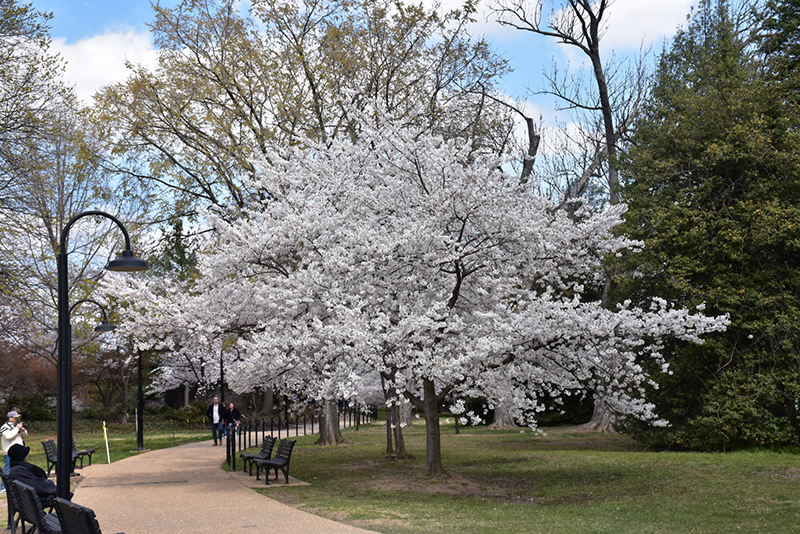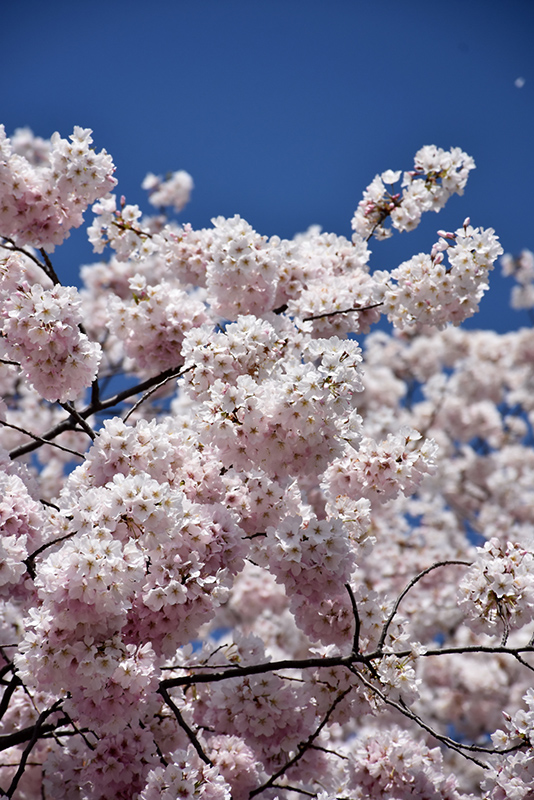Cherry, Flowering Yoshino Prunus x yedoensis Height: 30 feet Spread: 30 feet
Sunlight:
Hardiness Zone: 5a Description: An upright tree, with an arching spread, covered in early spring with white flowers lightly blushed with pink; yellow fall color with a hint of bronze; an extraordinary landscape accent Ornamental Features Cherry, Flowering Yoshino features showy clusters of white flowers with shell pink overtones along the branches in early spring, which emerge from distinctive rose flower buds before the leaves. It has dark green deciduous foliage. The serrated pointy leaves turn an outstanding yellow in the fall. However, the fruit can be messy in the landscape and may require occasional clean-up. The smooth brown bark adds an interesting dimension to the landscape. Landscape Attributes Cherry, Flowering Yoshino is a deciduous tree with an upright spreading habit of growth. Its average texture blends into the landscape, but can be balanced by one or two finer or coarser trees or shrubs for an effective composition. This tree will require occasional maintenance and upkeep, and is best pruned in late winter once the threat of extreme cold has passed. It is a good choice for attracting birds to your yard. It has no significant negative characteristics. Cherry, Flowering Yoshino is recommended for the following landscape applications; Planting & Growing Cherry, Flowering Yoshino will grow to be about 30 feet tall at maturity, with a spread of 30 feet. It has a high canopy of foliage that sits well above the ground, and should not be planted underneath power lines. As it matures, the lower branches of this tree can be strategically removed to create a high enough canopy to support unobstructed human traffic underneath. It grows at a medium rate, and under ideal conditions can be expected to live for 50 years or more. This tree should only be grown in full sunlight. It does best in average to evenly moist conditions, but will not tolerate standing water. This plant should be periodically fertilized throughout the active growing season with a specially-formulated acidic fertilizer. It is not particular as to soil pH, but grows best in rich soils. It is highly tolerant of urban pollution and will even thrive in inner city environments. This particular variety is an interspecific hybrid.![]()
![]()
![]()
![]()
![]()
![]()
![]()
![]()
![]()
![]()
![]()



